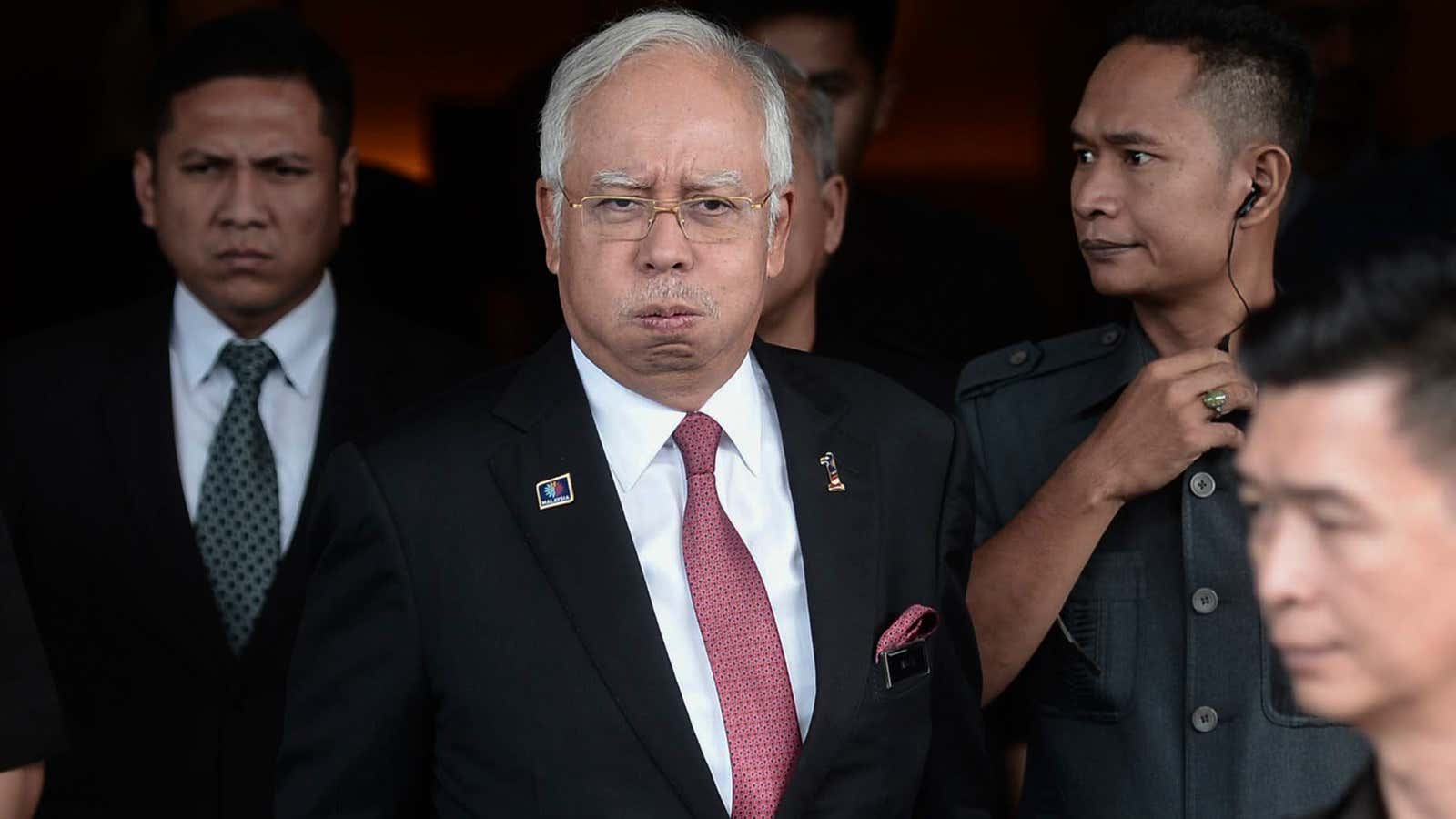Last August tens of thousands of Malaysians gathered in Kuala Lumpur and demanded to know how almost $700 million linked to the debt-laden government investment fund 1Malaysia Development Berhad (1MDB) ended up in prime minister Najib Razak’s personal bank accounts.
Five months later, they have an answer from the attorney general appointed by Najib. According to Mohamed Apandi Ali, no bribery or graft was involved in the 1MDB affair. Apandi explained that the funds were a personal gift to Najib from the royal family of Saudi Arabia, and all but $61 million had been returned.
The explanation, provided on Jan. 26, did little to placate government critics, since it raised as many questions as answers. For starters, why would the Saudis give Najib such a massive sum?
The situation is now becoming clearer, if a “well-placed” Saudi source interviewed by the BBC is to be believed. The source, who asked not to be named, told the BBC the payment was authorized from the very top—Saudi Arabia’s late King Abdullah—and that funds came from both the king’s personal finances and state funds. He added that his government routinely hands out sums of more than $100 million to governments that are resisting the influence of the Muslim Brotherhood, which opposes many established governments in the Muslim world, and whom the Saudis consider to be terrorists.
At the time the donation was allegedly made in early 2013, the BBC noted, Najib’s ruling party was heading into an election against an opposition coalition that included the Pan-Malaysian Islamic Party, whose founders were inspired by the Muslim Brotherhood. The BBC’s Saudi source said that the kingdom also gave similarly large donations to the governments of Jordan, Morocco, Egypt, and Sudan.
Despite the unnamed Saudi source’s explanation, many government critics still believe that “Saudi donation” is merely a smokescreen to cover corruption.
“The notion that the Saudi ‘royals’ would ‘donate’ hundreds of millions of dollars to a foreign leader, as opposed to a government institution, struck me as suspect, to say the least,” Fahad Nazer, a senior political analyst at consultancy firm JTG, told the Wall Street Journal (paywall).
Also, two government ministries in Saudi Arabia told the Journal they have no information about such a donation, which would have been unprecedented.
As the Journal reported in July 2015, an earlier Malaysian government investigation found almost $700 million had entered Najib’s accounts via banks, companies, and entities linked to 1MDB. A senior Goldman Sachs banker who helped the firm win business with 1MDB took a personal leave of absence yesterday (Jan. 27) and relocated to the US (paywall).
The attorney general closed investigations into Najib after reviewing reports from the Malaysian Anti-Corruption Commission. But those reports included a recommendation to charge Najib with criminal misappropriation, said a source at the agency quoted by Reuters today (Jan. 28).
Yesterday, the agency said it would seek a review with an independent government panel of the attorney general’s decision to clear Najib. Opposition lawmaker Lim Kit Siang said the attorney general was “taking Malaysians as a nation of fools and simpletons if he expects his bald statements… to be accepted without any questions.
Many Malaysians have been angered by the inexplicably lavish lifestyle of the prime minister’s family and friends, including epic shopping sprees by his wife and the acquisition of posh Manhattan real estate. Today, Najib will announce the nation’s re-calibrated 2016 budget. He is expected to outline steps that will enable the government to optimize its spending.




